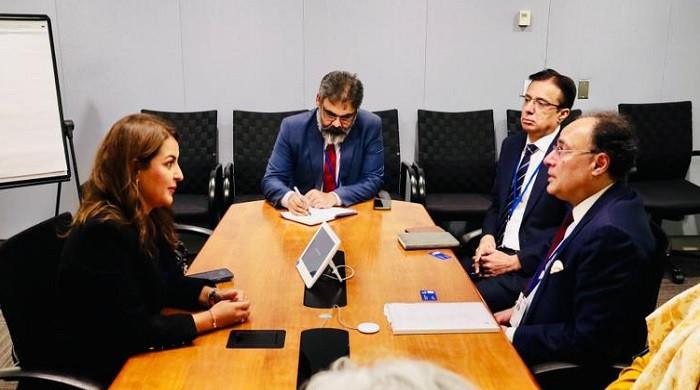
Pakistan's Economic Potential: Insights from Washington Talks
In a recent meeting held in Washington, D.C., Pakistan's Federal Minister for Finance and Revenue, Senator Muhammad Aurangzeb, emphasized the immense economic potential of Pakistan. In discussions with Dr. Hajar El Haddaoui, the Director General of the Digital Cooperation Organisation, Aurangzeb highlighted the country's strategic position, resources, and opportunities for growth in various sectors. This article delves into the key points discussed during the talks and examines how Pakistan can harness its economic potential to foster development and attract investment.
The Strategic Importance of Pakistan
Pakistan, located at the crossroads of South Asia, the Middle East, and Central Asia, has long been recognized for its strategic geopolitical significance. With a population exceeding 240 million, it presents a large consumer market ripe for investment. The country’s strategic location also offers access to major trade routes, making it a vital player in regional and global trade dynamics.
Economic Growth and Development
During the Washington talks, Senator Aurangzeb pointed out that despite facing various economic challenges, Pakistan's fundamentals remain strong. The country has demonstrated resilience in the face of adversity, with various sectors showing promising growth potential. Key areas of focus include:
1. Agriculture: Pakistan is primarily an agricultural economy. With advances in technology and sustainable practices, the agriculture sector can significantly boost productivity and food security.
2. Information Technology: The IT sector in Pakistan has seen exponential growth. With a young and tech-savvy population, the country is positioned to become a global hub for IT services, software development, and innovation.
3. Energy Sector: Pakistan has vast renewable energy resources, including solar and wind. Investment in renewable energy can help the country meet its energy demands sustainably and reduce reliance on fossil fuels.
4. Infrastructure Development: The China-Pakistan Economic Corridor (CPEC) is a flagship project that aims to enhance infrastructure connectivity. Improved roads, railways, and ports will facilitate trade and economic growth.
Attracting Foreign Investment
One of the significant takeaways from the discussions was the need for Pakistan to create an attractive environment for foreign investors. Senator Aurangzeb stressed that Pakistan is committed to implementing reforms that promote transparency, ease of doing business, and investor confidence. The government is working on policies that will simplify regulatory processes and provide incentives for foreign companies to invest in the country.
The Role of Digital Cooperation
The collaboration with the Digital Cooperation Organisation highlights Pakistan's commitment to embracing digital transformation. By leveraging technology, the country can not only improve its public services but also create a conducive environment for startups and tech entrepreneurs. Digital literacy initiatives and investments in technology infrastructure are crucial for preparing the workforce for the digital economy.
The Future of Pakistan's Economy
As Pakistan looks to the future, the collaboration between the government and international organizations will be vital. The discussions in Washington signify a step towards building stronger economic ties with global partners. By focusing on sustainable development, technological advancement, and infrastructure improvements, Pakistan can unlock its economic potential and pave the way for a prosperous future.
Conclusion
Senator Muhammad Aurangzeb's discussions in Washington serve as a reminder of Pakistan's untapped economic potential. With the right policies and investments, the country can emerge as a significant player in the global economy. By capitalizing on its strategic location, young workforce, and rich resources, Pakistan can attract foreign investment and foster sustainable economic growth.
FAQs
1. What are the key sectors for economic growth in Pakistan?
Key sectors include agriculture, information technology, energy, and infrastructure development.
2. How is Pakistan attracting foreign investment?
Pakistan is implementing reforms to enhance transparency, ease of doing business, and create incentives for foreign investors.
3. What role does digital cooperation play in Pakistan's economy?
Digital cooperation is crucial for embracing technology, improving public services, and fostering a startup ecosystem.
4. Why is Pakistan's strategic location important?
Pakistan's location provides access to major trade routes, enhancing its role in regional and global trade.
5. What is the China-Pakistan Economic Corridor (CPEC)?
CPEC is a flagship project aimed at improving infrastructure connectivity between China and Pakistan, facilitating trade and economic growth.
In conclusion, the talks held in Washington underscore the significant opportunities that lie ahead for Pakistan. With the right focus and international collaboration, the nation can realize its full economic potential.
Tags
Business
